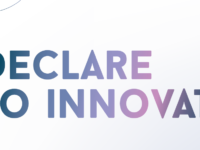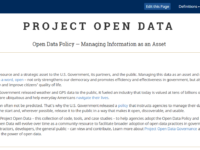Editor’s note: This is a guest blog written by Emily Wise, Lund University action researcher for Future by Lund, Sweden. Lund municipality’s innovation platform, Future by Lund works to catalyse development activities for sustainable cities – addressing complex challenges through collective action. Leveraging insights from OPSI’s innovation facets model (among others), the Future by Lund team is currently experimenting with new ways to steward and advance a portfolio of collaborative…
Search:
Evidence and Resource Library on Public Sector Reform which documents country experiences, good practices and challenges, shares a wide range of information on modalities /methodologies on peer learning, publicises original, empirical research when and where knowledge gaps are identified, and documents and disseminates stories of change. Hundreds of entries are tagged by problem type, theme, and keyword.
This blog was authored by former intern, Théo Bourgery OPSI is seeking your comments and edits on a draft working paper “Blockchains Unchained: The Implications of Blockchain Technologies for the Public Sector”. Let us know what you think by 20 March! Blockchain technology has evolved from a niche subject to the hottest tech disruption buzzword, but there is still a lot of confusion around the subject. Without a clear understanding about what blockchains are, their…
This document provides an initial analysis of the public sector innovation system in Israel. It uses OPSI’s public sector innovation system model to provide initial observations and questions for further research.
Disclaimer Please note that the OECD has not formally reviewed the responses and information provided and does not necessarily endorse any of the solutions included. Our objective is to share information and ideas at the maximum speed for governments to make use of it. As such, review and validation of information is limited and does not directly reflect the views or beliefs of the OECD. This platform, as well as any data and any map...
OPSI will host a webinar on the 13 February 2019 at 3pm (Paris time) on its draft Innovation Declaration. it will give country case studies on the use and usefulness of innovation declarations, overview the concepts underpinning OPSI's Declaration and offer practical guidance on how people can participate in the public consultation on the draft.
The Design Process Mini-Guide is five-page document outlining a design process taught at the Stanford d.school. The school gives this resource to students after a short design experience, to help solidify the takeaways and abstract the experience to useful framework. The publishers suggest using the document in conjunction with an action-oriented design experience, such as their related Gift Giving Project and Wallet Project. This resource is on an older archive version of the d.school website.…
Welcoming your thoughts on our next AI primer Last year, the OPSI team launched the “Blockchains Unchained” report. This was the first working paper in a series intended to provide the public sector with an overview of the necessary knowledge about a specific emerging technology. The report also aims to help stakeholders understand the challenges and opportunities associated with the technology. To inform public servants and policymakers, OPSI not only draws from academic discussions but...
Toolkit
Implementation Guidance for Executive Order 13707: Using Behavioral Science Insights to Better Serve…

A collection of code, tools, and case studies to help United States federal agencies adopt the Open Data Policy and unlock the potential of government data.
This project is meant to be a living document, so that collaboration in the open data ecosystem is fostered, and the continual update of technology pieces that affect update can happen at a more rapid pace. Edits to the content may be made by anyone.
It could provide other governments with examples and starter content for its own open data…







